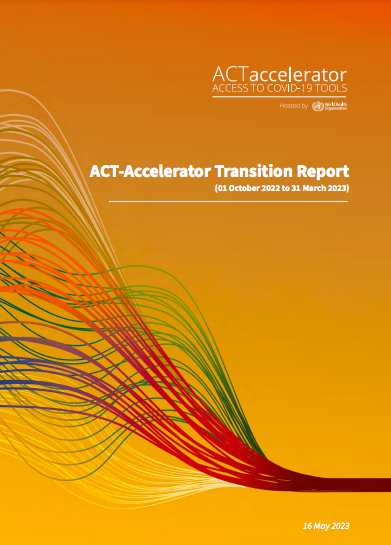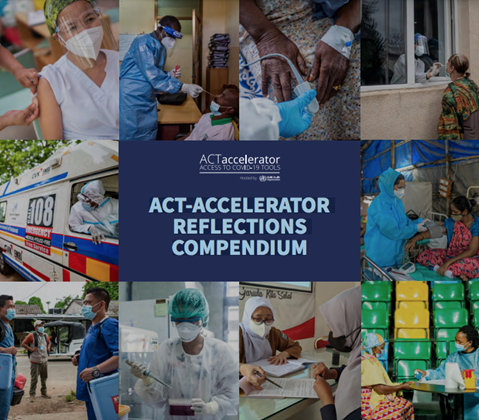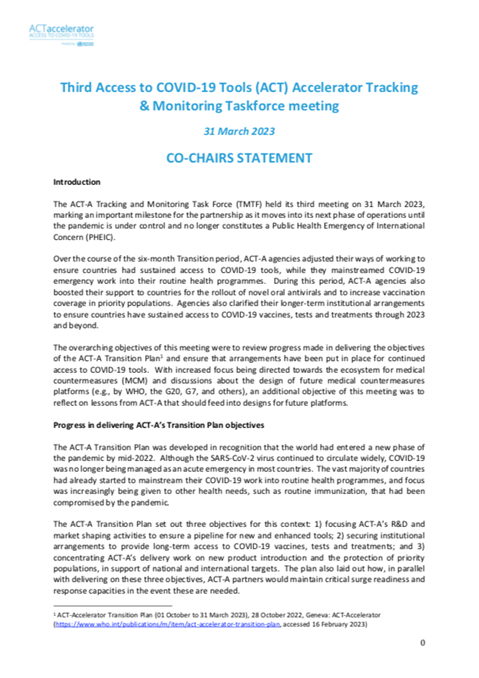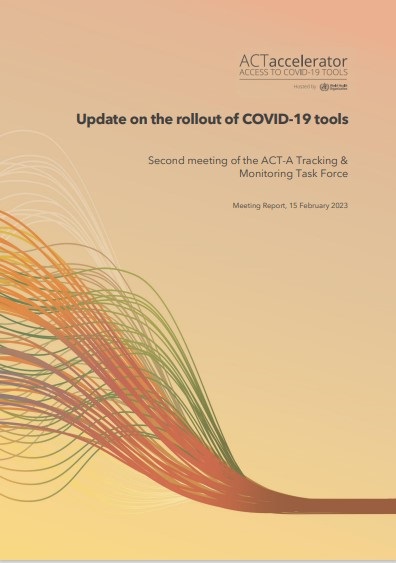The Transition Report includes a summary of achievements against each transition objective, related monitoring and coordination activities (e.g., supported by the ACT-A Tracking and Monitoring Task Force), and a Pillar-by-Pillar update on implementation progress. It reflects inputs from across the ACT-A partners as well as from recent reports and meetings, including the 3rd meeting convened by the ACT-A Council Tracking and Monitoring Task Force on 31 March 2023.
Reflections on the way forward are provided in the final section of the report, with quarterly information (for Q4 2022 and Q1 2023) included as annexes. It also provides insights into how ACT-A partners have mainstreamed their COVID-19 work and will carry forward ongoing activities as part of their regular programmes and support.




